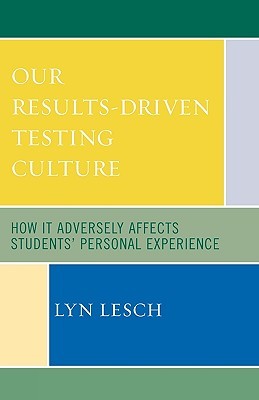
- We will send in 10–14 business days.
- Author: Lyn Lesch
- Publisher: R & L Education
- ISBN-10: 1578866626
- ISBN-13: 9781578866625
- Format: 15.2 x 20.7 x 1.2 cm, softcover
- Language: English
- SAVE -10% with code: EXTRA
Reviews
Description
Lyn Lesch advocates that learning cannot be measured by empirical results like testing and grading. As the founder of Chicago's The Children's School, Lesch didn't give grades or submit students to standardized testing_such conditions may seem blasphemous to most educators, but the results spoke for themselves. Without the high-stakes pressure of results, accountability, and testing, students were able to take a more active role in their education. With reduced stress on performance, students can develop an openness to the material and link learning to their own personal experience. If the status quo goes unchanged, Lesch argues that students will be schooled in a disembodied, dull manner that prevents true learning and comprehension. To avoid this, Lesch describes how education should revolve around each student's personal experience (i.e., linking school with what matters to individual students). Perhaps more than anything, this book is intended to be a discussion point for developing a healthy relationship between personal experience and academic learning.
EXTRA 10 % discount with code: EXTRA
The promotion ends in 17d.18:23:42
The discount code is valid when purchasing from 10 €. Discounts do not stack.
- Author: Lyn Lesch
- Publisher: R & L Education
- ISBN-10: 1578866626
- ISBN-13: 9781578866625
- Format: 15.2 x 20.7 x 1.2 cm, softcover
- Language: English English
Lyn Lesch advocates that learning cannot be measured by empirical results like testing and grading. As the founder of Chicago's The Children's School, Lesch didn't give grades or submit students to standardized testing_such conditions may seem blasphemous to most educators, but the results spoke for themselves. Without the high-stakes pressure of results, accountability, and testing, students were able to take a more active role in their education. With reduced stress on performance, students can develop an openness to the material and link learning to their own personal experience. If the status quo goes unchanged, Lesch argues that students will be schooled in a disembodied, dull manner that prevents true learning and comprehension. To avoid this, Lesch describes how education should revolve around each student's personal experience (i.e., linking school with what matters to individual students). Perhaps more than anything, this book is intended to be a discussion point for developing a healthy relationship between personal experience and academic learning.


Reviews